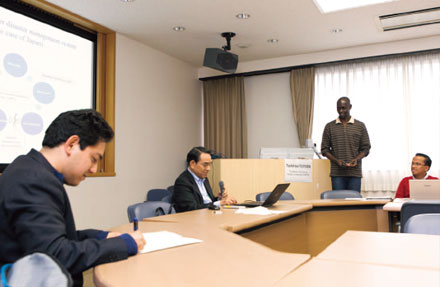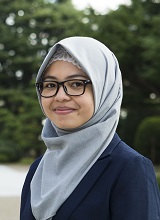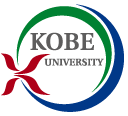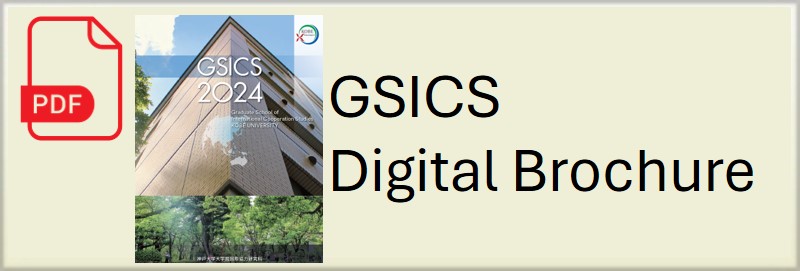
Distinctive Features
This program was established in 1999 in order to enable international students to continue their studies using English and to acquire a doctoral degree. Proficiency in Japanese is not generally considered in the selection process, although a high proficiency in Japanese may be required for some applicants, depending on their research topic. This is a highly competitive program and only those having excellent academic credentials and outstanding potential will be accepted.
Study Requirements and Degrees Granted
Students will be assigned an academic supervisor with whom they will work to pursue their research. All students are required to take a candidacy examination before completing their doctoral thesis. Students who have obtained the status of doctoral candidate and completed their thesis must pass a final examination and have their thesis approved by the GSICS faculty. The standard duration of study is three years. For students of exceptional capability, the duration may be shortened.
Students who have successfully completed the requirements will be granted one of the following doctoral degrees: Doctor of Philosophy, Doctor of Philosophy in Economics, Doctor of Laws, or Doctor of Philosophy in Political Science.

Curriculum
In the doctoral program, students are required to take Advanced Research (8 credits) and Advanced Research Presentation (2 credits). They must also earn a total of at least 4 credits from among the following (2credits): Workshop I, Workshop II, Internship, Advanced Overseas Research, and International Organization Management. Students must also receive instruction regarding the writing of their thesis from their academic supervisor.
Messages

Associate Professor
NISHITANI Makiko

Professor
MATSUNAMI Jun
Should the differences between your country’s politics and Japanese politics be explained by institutional designs, by the histories of the two countries or by different political cultures? Perhaps we should instead question the very existence of differences between countries themselves. As a Japanese scholar whose main research field is Japanese politics, GSICS is an intellectual wonderland because there are students who want to study about many different countries and also many international students coming from a variety of countries and backgrounds.

Graduate Student
Nurul Kartika Putri
As a part of a leading university in social science, GSICS offers an international and multidisciplinary approach to help students exercise skills of global citizenship through practical experiences and cross-learning.There are a variety of lectures conducted by professors with expertise in the field of economics, law, international studies as well as political science. The important thing is that the way they are delivered also harnesses students’ critical thinking, creativity, communication, and collaborative skills. The facilities are also amazing! That cozy student room, well-equipped IT room, and first class library make a learning experience unbelievably satisfying, not to mention the cafeteria also provides meals for those with particular dietary restrictions. Furthermore, there are many opportunities for overseas internships, conferences, and trainings to globalize students. GSICS really encourages intellectual endeavors with a warm and supportive school environment while fostering what every future leader always dreams of: To embrace the world beyond borders. Those are several reasons why I choose GSICS. Please find yours!

Graduate Student
Mizan Bustanul Fuady Bisri
In the face of more complex and interdependent global problems and challenges like unresolved poverty, climate change and disaster, urgent need for improvement of human education, and others, the world is in need of scholars and professionals who have the intellectual, skills, and attitude to make a significant contribution to shape a more sustainable and resilient future. The GSICS of Kobe University is among the leading graduate schools in Japan that produces such scholars and professionals, given its vast knowledge from all permanent and visiting professors, international environment, as well as multiple supports for students to conduct high-quality research such as international fieldwork, internship opportunities, and endorsements to receive research grants. Studying at GSICS will give you the privilege of being at the forefront of global development, as the graduates of this school make significant contributions to the world!










Today's global governance, especially in the areas of human rights, environment, and development, is characterized by a diversity of stakeholders, including international organizations, civil society organizations and corporations, as well as states. They create diverse norms and organizations that sometimes improve the effectiveness of international regimes through coordination and synergy, but at other times conflict with each other and hinder effective problem-solving.How can we reduce conflicts of interest and contestation of ideas and enhance the effectiveness of governance? You are more than welcome to join us in thinking about these issues!